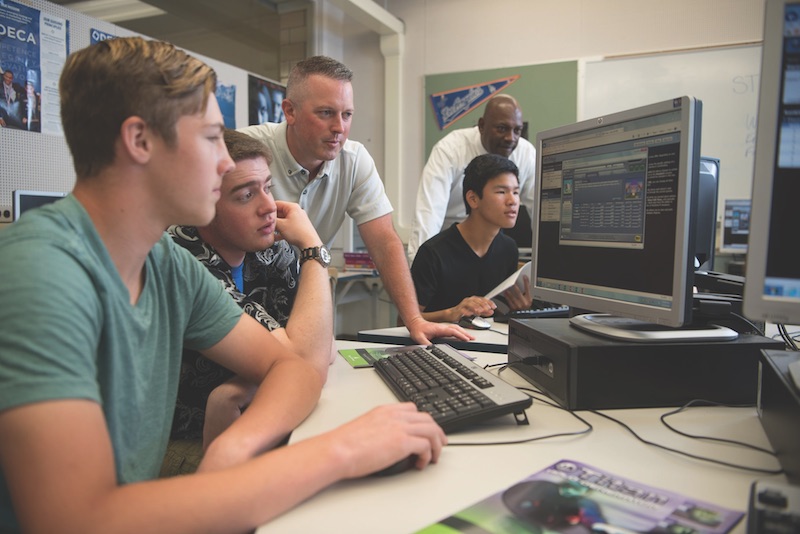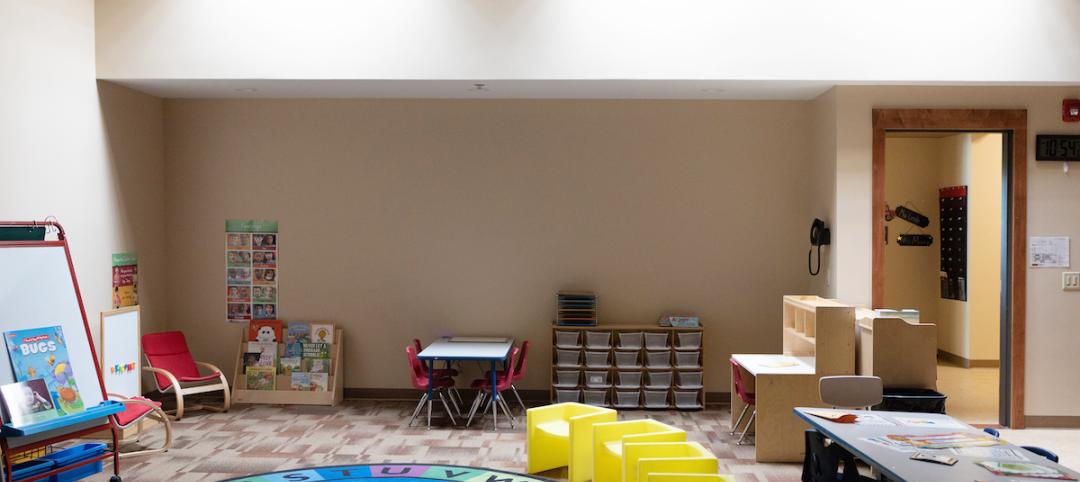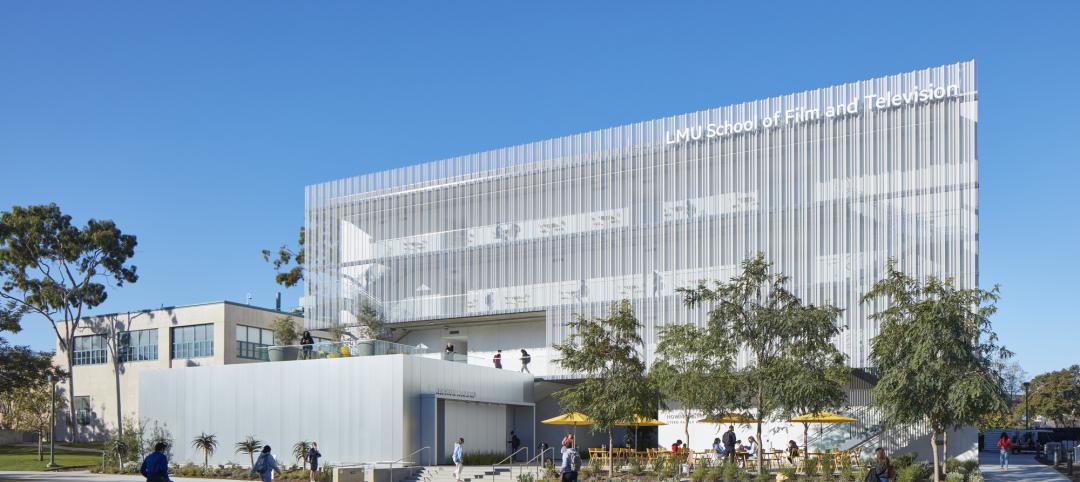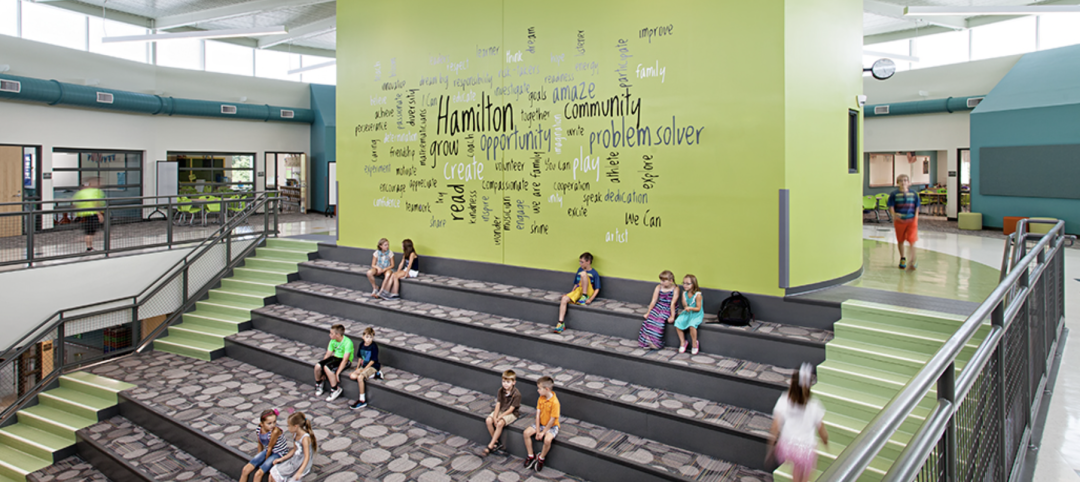In 2011, the Commerce Department’s Economics and Statistics Administration, using Bureau of Labor Statistics employment projections, predicted that STEM-related occupations would expand by 17% from 2008 through 2018, compared to 9.8% growth for all non-STEM jobs during that same period.
Educators certainly bought into that projection, based on the increasing number of school districts across America whose high schools now offer STEM and STEAM courses or have built separate academies for these disciplines.
But has STEM, which the business community urged school districts to embrace, been oversold as a career path? Education Week magazine asked that very question in May 2018, and concluded, based on its own reporting and research, that while the government’s forecasting was basically on target, its inference that there’s this expanding pipeline of primed high school students itching to pursue STEM as a college major or career choice is “more nuanced” than the Commerce Dept.’s prognostications might suggest.
Around the same time that EdWeek published its findings, Junior Achievement USA and Ernst & Young released the results of a survey of 1,000 13- to 17-year-old students, conducted online in late February and early March, which uncovered a notable drop off—to 24%, from 37% in 2017—in the number of boys who said they wanted a STEM career. Girls’ interest in STEM remained unchanged, at 11%.
Ed Grocholski, Junior Achievement’s Senior Vice President-Brands, wasn’t completely surprised by the survey’s results, which he attributes, in part, to a lack of exposure that students have to STEM-related employees and fields. Conversely, the number of teens interested in medical or dental careers increased to 19% from 15%, with girls more likely to choose that path.
“Those professions are tangible to teens, and are something they can relate to, because they’ve either gone to a doctor or dentist, or have seen them on TV,” says Grocholski. He adds that teens are interested in professions they think will help people, like education, public service, law enforcement,
and the military.
Junior Achievement has been trying to fill the mentoring gap with volunteers who serve as role models. But he admits that such efforts “sometimes forget about the inspiration part.”
The takeaway for AEC firms, he says, is to get more involved in talking about their industry to youngsters, because “outside of TV, kids aren’t paying attention, even though a lot of STEM might actually coincide with their interests.”
Related Stories
University Buildings | Jan 17, 2023
Texas Christian University breaks ground on medical school for Dallas-Fort Worth region
Texas Christian University (TCU) has broken ground on the Anne Burnett Marion School of Medicine, which aims to help meet the expanding medical needs of the growing Dallas-Fort Worth region.
ProConnect Events | Jan 16, 2023
6 more BD+C ProConnect Events in 2023 – The videos show why you should participate
ProConnects bring building product manufacturers and suppliers together with architects, contractors, builders, and developers to discuss upcoming projects and learn about new products and technical solutions.
K-12 Schools | Dec 23, 2022
Vacant Target store in Minnesota turned into early childhood education center
Lincoln School, a former 90,000-sf Target retail store in Fergus Falls, Minn., was repurposed into Independent School District 544’s newest campus.
University Buildings | Dec 22, 2022
Loyola Marymount University completes a new home for its acclaimed School of Film and Television
California’s Loyola Marymount University (LMU) has completed two new buildings for arts and media education at its Westchester campus. Designed by Skidmore, Owings & Merrill (SOM), the Howard B. Fitzpatrick Pavilion is the new home of the undergraduate School of Film and Television, which is consistently ranked among the nation’s top 10 film schools. Also designed by SOM, the open-air Drollinger Family Stage is an outdoor lecture and performance space.
Adaptive Reuse | Dec 21, 2022
University of Pittsburgh reinvents century-old Model-T building as a life sciences research facility
After opening earlier this year, The Assembly recently achieved LEED Gold certification, aligning with the school’s and community’s larger sustainability efforts.
Sponsored | Resiliency | Dec 14, 2022
Flood protection: What building owners need to know to protect their properties
This course from Walter P Moore examines numerous flood protection approaches and building owner needs before delving into the flood protection process. Determining the flood resilience of a property can provide a good understanding of risk associated costs.
HVAC | Dec 13, 2022
Energy Management Institute launches online tool to connect building owners with HVAC contractors
The National Energy Management Institute Inc. (NEMI) along with the Biden administration’s Better Air in Buildings website have rolled out a resource to help building owners and managers, school districts, and other officials find HVAC contractors.
Student Housing | Dec 7, 2022
Cornell University builds massive student housing complex to accommodate planned enrollment growth
In Ithaca, N.Y., Cornell University has completed its North Campus Residential Expansion (NCRE) project. Designed by ikon.5 architects, the 776,000-sf project provides 1,200 beds for first-year students and 800 beds for sophomore students. The NCRE project aimed to accommodate the university’s planned growth in student enrollment while meeting its green infrastructure standards. Cornell University plans to achieve carbon neutrality by 2035.
University Buildings | Dec 5, 2022
Florida Polytechnic University unveils its Applied Research Center, furthering its mission to provide STEM education
In Lakeland, Fla., located between Orlando and Tampa, Florida Polytechnic University unveiled its new Applied Research Center (ARC). Designed by HOK and built by Skanska, the 90,000-sf academic building houses research and teaching laboratories, student design spaces, conference rooms, and faculty offices—furthering the school’s science, technology, engineering, and mathematics (STEM) mission.
Education Facilities | Nov 30, 2022
10 ways to achieve therapeutic learning environments
Today’s school should be much more than a place to learn—it should be a nurturing setting that celebrates achievements and responds to the challenges of many different users.















